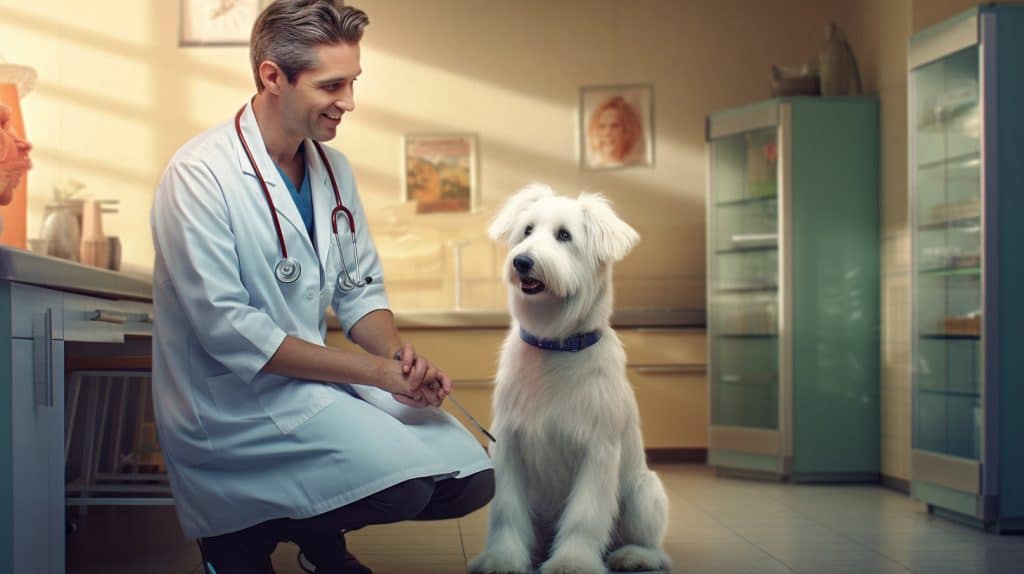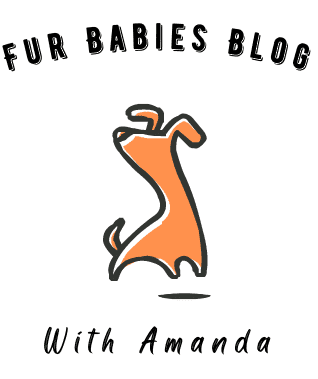The Best Dog Food for Allergies Explained
You walk through the door after a long day, and there they are – your furry friend scratching and itching away. They’ve had a few too many bouts of stomach upset or vomiting. Could it be a food allergy causing all this discomfort? Fear not, for there are solutions out there. By making the switch to the best dog food, you can significantly improve your dog's comfort and overall health.

Key Takeaways:
- Understand the Difference: Differentiate between food allergies and environmental allergies to better address your dog's symptoms.
- Hypoallergenic Food Options: Consider hydrolyzed protein or limited ingredient diet (LID) dog foods as options to manage your dog's food allergies.
- Consult with Your Vet: Work closely with your veterinarian to determine the best food for your dog's specific needs and monitor their progress for a happier, healthier pup.
Identifying Allergic Reactions
Symptoms
It's vital to be on the lookout for common symptoms of food allergies in your furry friend. If your dog is constantly scratching, experiencing bouts of vomiting or diarrhea, or has itchy skin and ear infections, these could indicate a potential food allergy. Pay attention to how they react after mealtime, as digestive problems like vomiting and diarrhea can also be signs of a food allergy.
The Difference between Food and Environmental Allergies
The distinction between food and environmental allergies is crucial. Food allergies occur when your dog's immune system reacts to a specific protein in their diet, leading to various symptoms like itchy skin, ear infections, and digestive issues. On the other hand, environmental allergies are triggered by external factors such as pollen, dust mites, or mold. Understanding this difference can help you determine the best course of action for managing your dog's allergies effectively.
Reactions may vary depending on the type of allergy your dog has. Food allergies are typically associated with gastrointestinal problems like vomiting and diarrhea, as well as skin issues such as itching and ear infections. In contrast, environmental allergies often manifest with respiratory symptoms like sneezing and coughing. By observing your dog's reactions carefully and noting any patterns, you can work towards identifying the specific allergen triggering their symptoms.

Hypoallergenic Dog Food Options
Hydrolyzed Protein Dog Foods
Now, if your furry friend is struggling with food allergies, consider trying hydrolyzed protein dog foods. These types of foods break down the protein molecules into smaller pieces, making them less likely to trigger an allergic reaction in your dog's immune system. This can help alleviate symptoms like itchy skin, ear infections, and digestive issues, promoting overall comfort and health for your pup.
Limited Ingredient Diets (LID)
Hypoallergenic limited ingredient diets (LID) are another excellent option to manage your dog's food allergies. These diets typically contain a single protein source, such as salmon or rabbit, paired with a limited number of carbohydrates. By eliminating common allergens like grains, LID dog foods can help reduce the likelihood of allergic reactions and improve your dog's overall well-being.
Understanding the difference between food and environmental allergies is crucial for effectively managing your dog's health. While environmental allergies are triggered by things like pollen and dust mites, food allergies result from your dog's immune system reacting to specific proteins in their diet. By opting for hypoallergenic best dog food options like hydrolyzed protein foods or limited ingredient diets, you can provide your furry companion with the relief they need from uncomfortable symptoms.
Tailoring the Diet to Your Dog's Needs
The Role of Elimination Diets
Keep in mind, when your furry friend is constantly scratching or experiencing bouts of vomiting, it might be time to consider an elimination diet. On this diet, you'll remove common allergens from your dog's food, then slowly reintroduce them to pinpoint the culprit. This method can be a game-changer in identifying and managing food allergies, offering relief to your pup.
When to Consider Grain-Free Options
For those pups with suspected grain allergies, grain-free options might be the way to go. When traditional dog foods with grains like wheat or corn seem to trigger discomfort in your fur baby, consider trying grain-free limited ingredient diets. These diets focus on single protein sources and less common allergens, potentially offering a solution to your dog's digestive issues and itching, providing a happier and healthier life for your beloved pet.
Additional Strategies for Managing Allergies
Once again, managing your furry friend's allergies involves more than just switching their food. There are additional strategies you can explore to help reduce their discomfort and improve their overall health.
The Benefits of Homemade Best Dog Food
One great alternative to store-bought hypoallergenic dog foods is homemade dog food. By preparing your dog's meals at home, you have full control over the ingredients, ensuring they are free from potential allergens. You can choose high-quality, fresh ingredients and tailor the recipe to suit your dog's specific dietary needs. Plus, cooking for your canine companion can be a fun bonding experience for both of you.
Probiotics and Allergy Relief
Homemade meals are not the only solution for managing your dog's allergies. Probiotics can also play a crucial role in providing allergy relief for your furry friend. These beneficial bacteria can help support your dog's gut health, strengthen their immune system, and reduce allergic reactions. By adding probiotics to their diet, you can potentially alleviate symptoms like itching, digestive issues, and overall discomfort.
Allergies can be a challenging issue to navigate, but with the right approach, you can help your dog feel more comfortable and happier. Homemade can be the best dog food and probiotics are just a couple of additional strategies you can consider alongside choosing the right hypoallergenic diet. Experiment with different options to see what works best for your beloved pet and always consult with your vet for personalized guidance and support.

To wrap up
So, if your furry friend is showing signs of a food allergy, don't fret! By understanding the difference between food allergies and environmental allergies, you can take the right steps to improve your dog's comfort and well-being. Consult your veterinarian for proper diagnosis and guidance and consider trying hypoallergenic dog foods like hydrolyzed protein or limited ingredient diets.
Your vet can help tailor a plan that suits your dog's specific needs, whether it's exploring homemade dog food options or incorporating probiotics. By working together with your vet and finding the right food, you can help your dog feel happy, healthy, and free from those pesky allergy symptoms. Say goodbye to scratching and tummy troubles, and get ready for a tail-wagging, happy pup!
FAQ
Q: What are the common signs of food allergies in dogs?
A: Food allergies in dogs can manifest as constant scratching, occasional vomiting, diarrhea, and ear infections. These symptoms can indicate your furry friend may have a food allergy.
Q: What is the difference between food allergies and environmental allergies in dogs?
A: Food allergies occur when a dog's immune system reacts to specific proteins in their diet, leading to various symptoms. On the other hand, environmental allergies are triggered by things like pollen, dust mites, or mold.
Q: What are some options for managing food allergies in dogs?
best A: To manage food allergies in dogs, you can try hypoallergenic dog foods, such as hydrolyzed protein food or limited ingredient diet (LID) options. These special foods can help alleviate allergic reactions and improve your dog's comfort and overall health.



